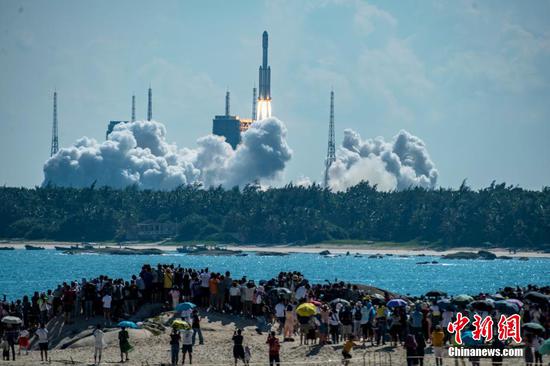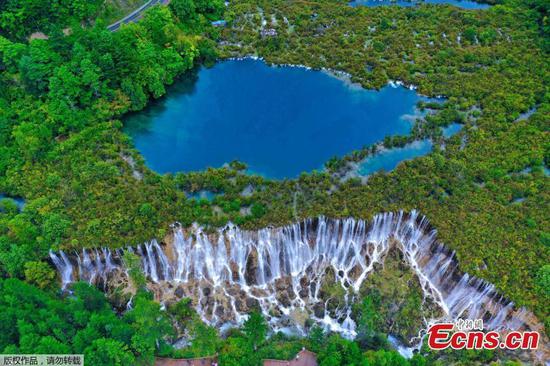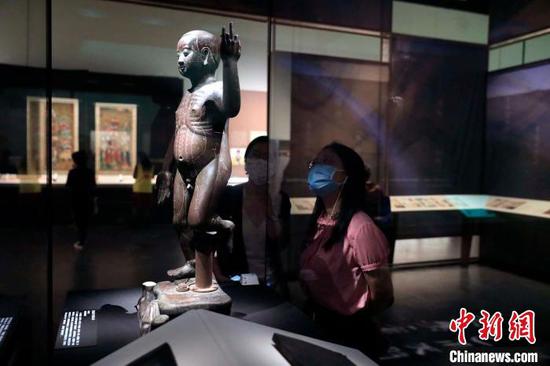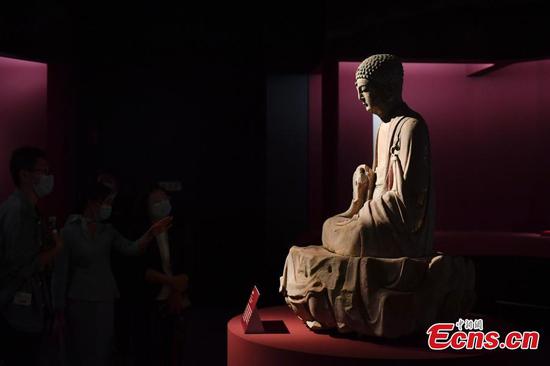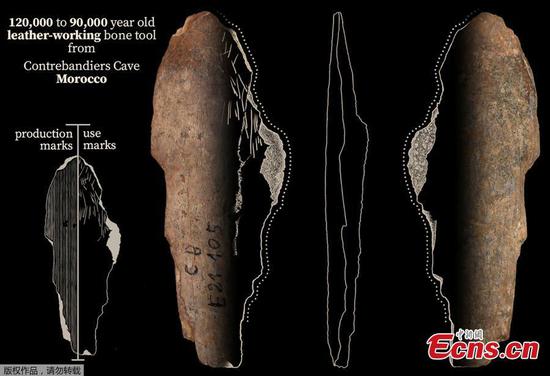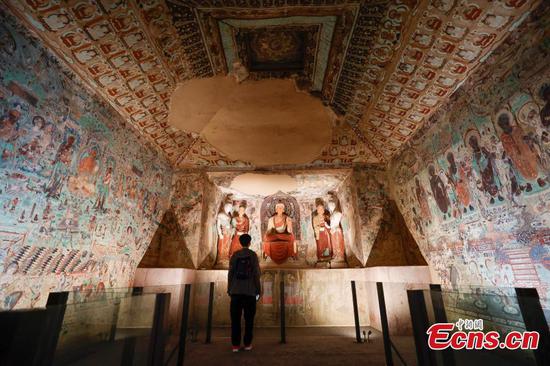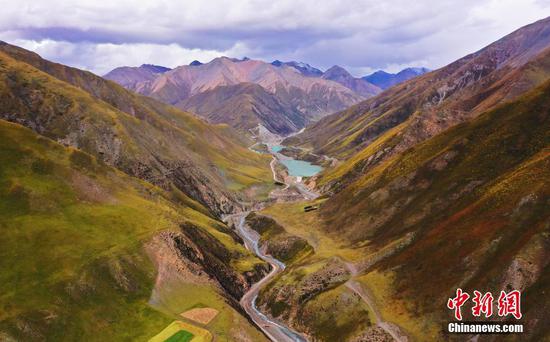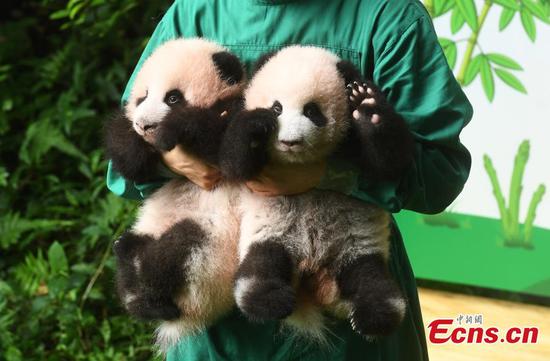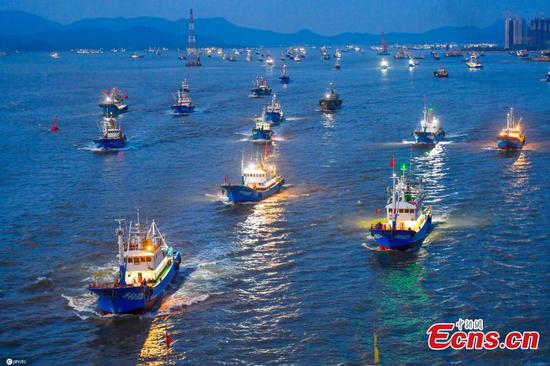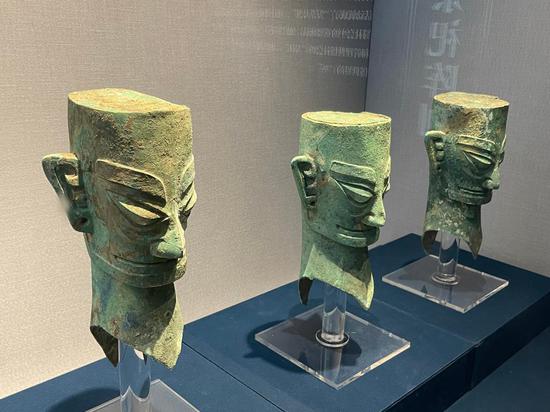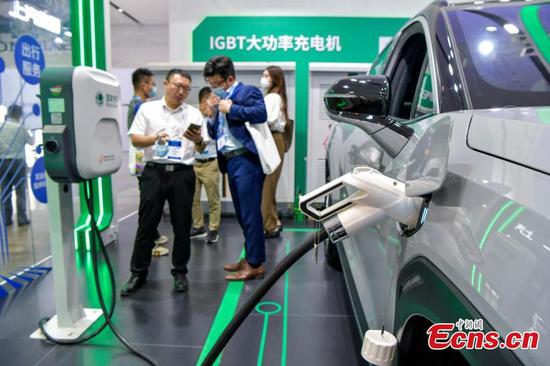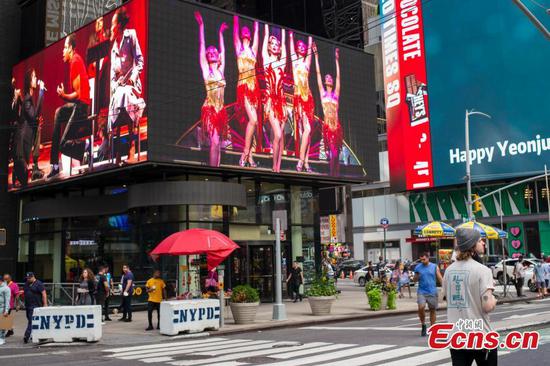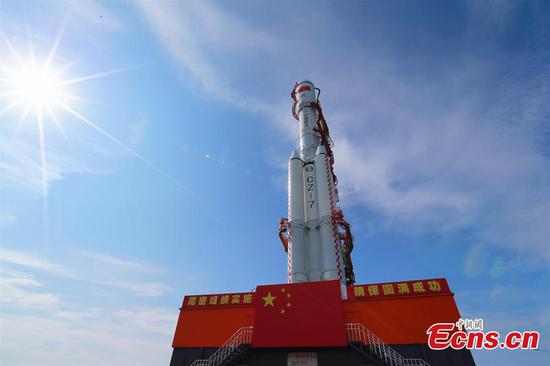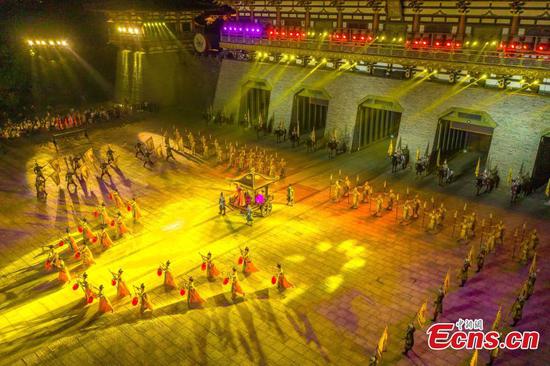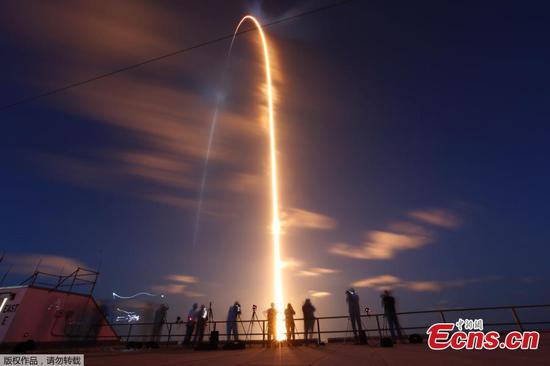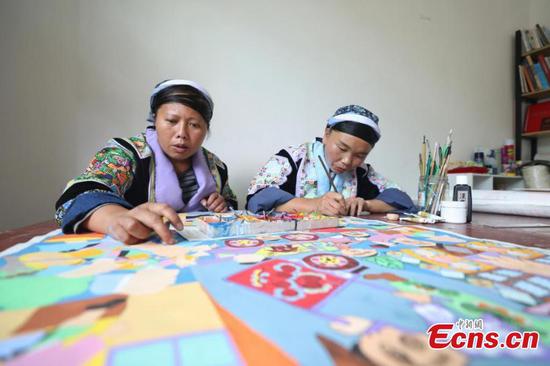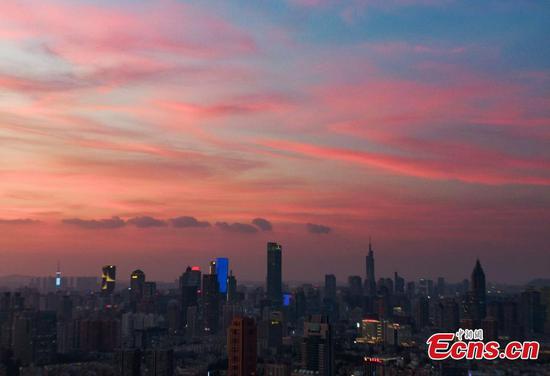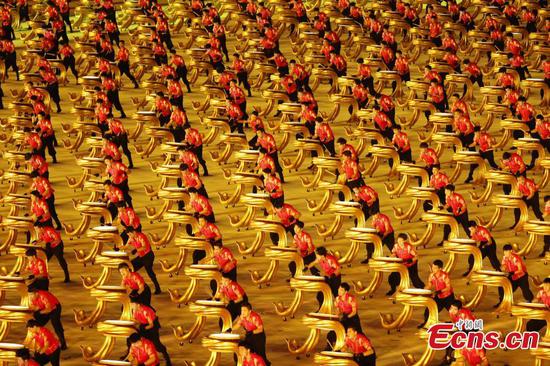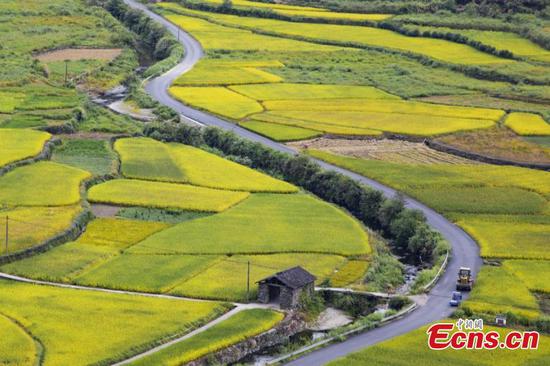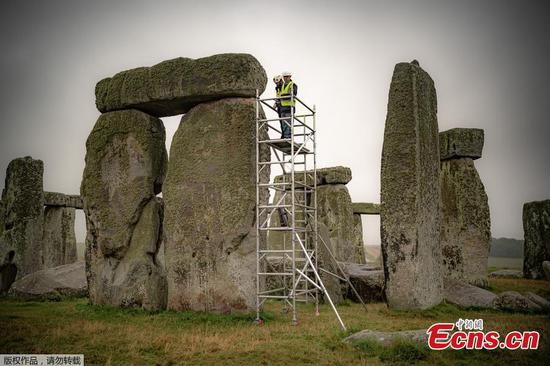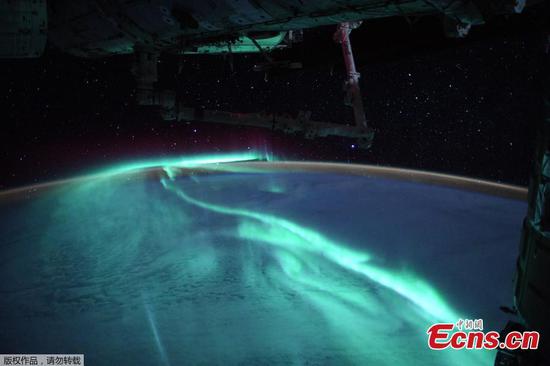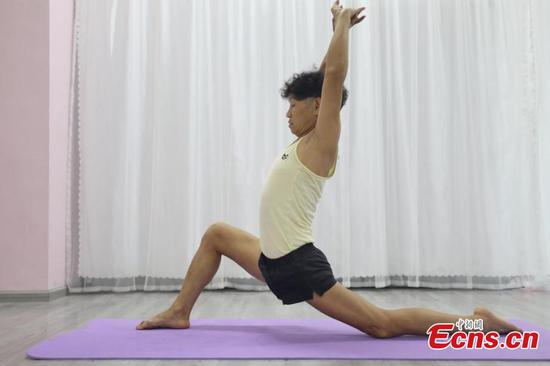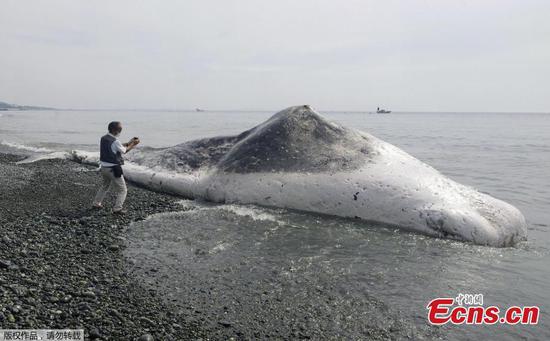On the same page
Timmermans said bilateral contacts between the EU and China on climate have intensified since 2018.
"We have many, many exchanges. I want to particularly mention the several discussions I've already had with Vice-Premier Han Zheng. We are on the same page," he said.
Timmermans and Han inaugurated the first High-level Environment and Climate Dialogue between China and the EU on Feb 1.This mechanism was agreed at a virtual summit attended by President Xi, German Chancellor Angela Merkel, European Council President Charles Michel and European Commission President Ursula von der Leyen on Sept 14 last year during Germany's presidency of the Council of the European Union. Timmermans and Han also met via video link in July last year.
After the high-level dialogue with Han in February, Timmermans tweeted: "We have laid the foundation for a good partnership and will work closely together toward COP26 in Glasgow and COP15 in Kunming. We must seize these moments to put the world on a path of green recovery, to ensure everyone's health and well-being for generations to come."
Turning to Xie, China's climate envoy who was the nation's lead negotiator in this field for many years, Timmermans said, "We haven't known each other for very long, but we trust each other."
He said Xie is very clear about China's continued commitment to decarbonizing its economy and achieving carbon neutrality.
Timmermans said he is so positive about the relationship with his Chinese colleagues, and not because they agree on everything. They respect their disagreements, and even those disagreements "lead to a dialogue" and don't "spoil our positive cooperation on where we agree".
"I think this is a sign of a healthy and mature relationship that you don't just talk about the things you agree, but you also openly and directly address the issues where you disagree," said the 60-year-old, who has spent most of his life away from the Netherlands and speaks fluent English, French, German, Italian and Russian, in addition to his native Dutch.
He said there is not always agreement about coal, for example, but it is discussed because the world needs to move ahead on the issue of coal-fired power generation.
"We do this in a constructive way, even when we disagree. That's what I like about the relationship," he added.
Timmermans said China's continued commitment to decarbonize its economy and achieve carbon neutrality is very clear in their meetings, and he looks forward to further announcements about the nation's plans.
Ding Chun, director of the Center for European Studies at Fudan University in Shanghai, said Timmermans has been very active and pragmatic in promoting cooperation with China and has set a good example for such cooperation among countries worldwide.
Kunming to Glasgow
Timmermans voiced his appreciation for China hosting the 15th meeting of the Conference of the Parties to the Convention on Biological Diversity, or COP15 in Kunming (capital of Yunnan province). Due to the COVID-19 pandemic, the conference will be held online from Oct 11-15 and in-person from April 25 to May 8 next year.
Echoing Xi's comments over the years that "green mountains and clear water are equal to mountains of gold", Timmermans praised China for understanding that the threat of biodiversity loss is as much a challenge as the climate crisis.
"That is the premise on which Kunming is being prepared. I think that is very wise," said Timmermans, who attended a global biodiversity forum this month in Marseille, France, where Chinese Premier Li Keqiang delivered a pre-recorded speech.
Timmermans believes that splitting COP15 into two parts may help achieve even more success at the second meeting next year.
He said he sees a clear commitment from China. "We need to let nature restore itself," Timmermans added, citing the fact that if parts of the ocean are left alone, they restore themselves very quickly.
"So we need to come to an agreement internationally that we will let nature restore itself. We need to protect substantial parts of the planet," he said.
"I hope we can come to some conclusions in Kunming, and I know I can count on the strong commitment of the Chinese authorities."
China is the third-most biodiverse country in the world, with more than 34,000 known species of animals and plants, according to the International Union for Conservation of Nature, which hosted the Marseille meeting.
Timmermans also has high hopes for COP26 in Glasgow.
"I want us to be able to say afterward that we are still on track to keep the temperature rise well below 2 degrees and that we still have a shot at 1.5 degrees. That should be the collective conclusion at the end of COP26," he said, adding, "We are all faced with a huge responsibility toward next generations."
Timmermans said the pandemic poses a grave challenge, but it has also helped Europeans come together not just on vaccination, but in unleashing an unprecedented amount of money for investment to transform the EU economy into a more-sustainable model.
"We are investing in the future of our children and grandchildren," he said.
The EU has promised to become climate neutral by 2050. One-third of its 1.8 trillion euro ($2.1 trillion) investment from its NextGenerationEU Recovery Plan and seven-year budget will finance the European Green Deal.
A European Commission report in April showed that 93 percent of EU citizens see climate change as a serious problem. The report cited Eurobarometer, a series of surveys initiated by the European Commission to measure public opinion in EU member states.
Looking ahead to COP26, Timmermans is optimistic. "We can face the challenge," he said. "The only thing that can stop us facing the challenge is that we quarrel and don't come to common conclusions on what humanity needs.
"No nation on Earth can escape that responsibility. … We have no time to lose."
He called on rich countries to fulfill their obligation on climate financing to poor nations.
At the UN Climate Change Conference in Copenhagen, Denmark, in 2009, rich countries promised to provide $100 billion a year by 2020 in climate adaptation and mitigation for the poorest nations.
The latest report from the Organization for Economic Cooperation and Development shows that rich countries mobilized nearly $80 billion in climate financing in 2019, but much of it was in the form of loans, some of them on commercial terms, rather than grants.
The report showed that the US had the biggest shortfall among 23 countries, fulfilling just 4 percent of its $43 billion promise.
In her State of the Union address on Sept 15, von der Leyen, the European Commission president, said the EU has delivered its commitment by contributing $25 billion a year. The EU also proposes an additional 4 billion euros for climate financing until 2027.
"But we expect the United States and our partners to step up, too," she said.
Timmermans said that in addition to emissions reductions from all major emitters, rich countries need to deliver on the promise of $100 billion for climate adaptation and mitigation. Otherwise, the poorest countries, some of which risk literally disappearing due to climate change, will lose trust in the system and in rich nations.
"We need to strengthen the trust of the least-developed countries, of the island states, in the system that it will protect them, that it will give them the means to adapt to climate change," he said.
"That is something we need to do in Glasgow," said Timmermans, who was a strong candidate for the Party of European Socialists in the election for the European Commission presidency in May 2019.








